Anxiety – for Older Adults & Care Partners
Clinical Guidelines
Discover the first guidelines on anxiety in older adults.
For Health Care Professionals
Find clinical tools and resources to support your patients.
It is important to know when and who to ask for help.
Getting older brings about a lot of changes, some that are positive and some that are stressful. In small amounts, stress and anxiety can help you stay alert to risks and motivate you to take action. However, longer lasting anxiety can be a warning signal about your stress level.
Anxiety symptoms, such as worry, nervousness, or panicky feelings, which last for weeks or months at a time, and which get in the way of living your life, are not a normal part of getting older.
Key Facts
Discover Our Resources
Not sure where to begin?
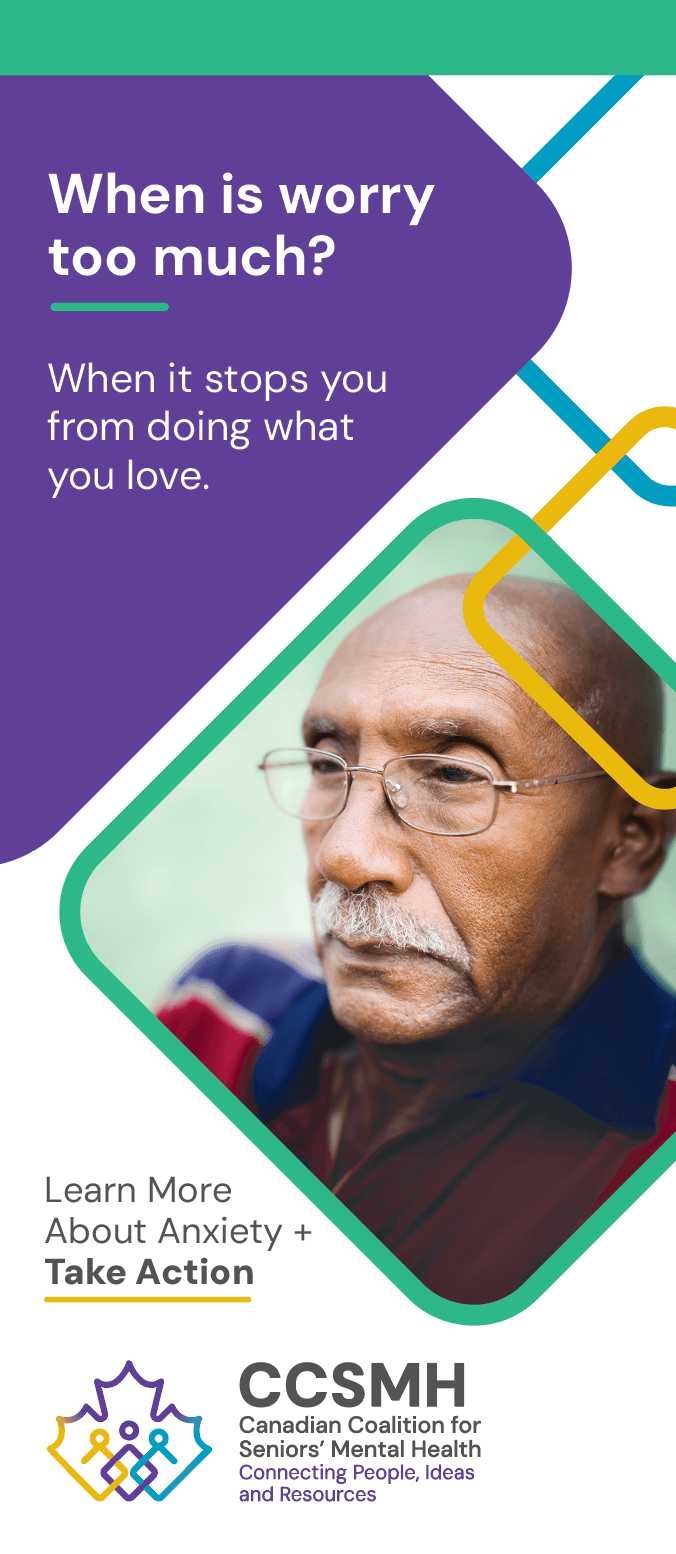
Learn more about anxiety in older adults in this brochure and share it with your colleagues, friends and family.
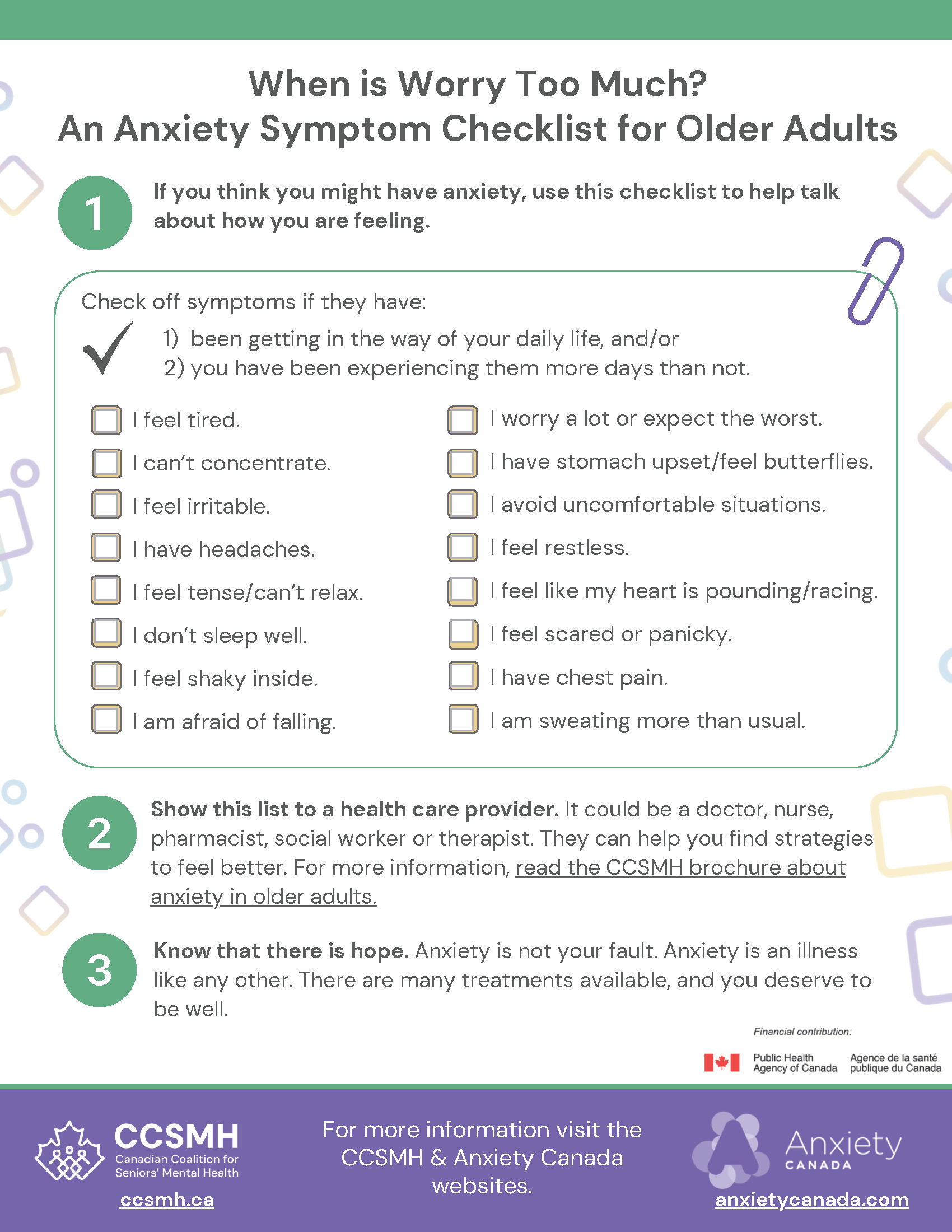
If you think you may have anxiety, use this checklist to help talk about how you are feeling.
Are you a care partner?
Caregiving can be rewarding. Yet, most caregivers experience conflicting feelings of isolation, grief, compassion, joy and overwhelm as they provide care. Learn how to take care of your mental health.
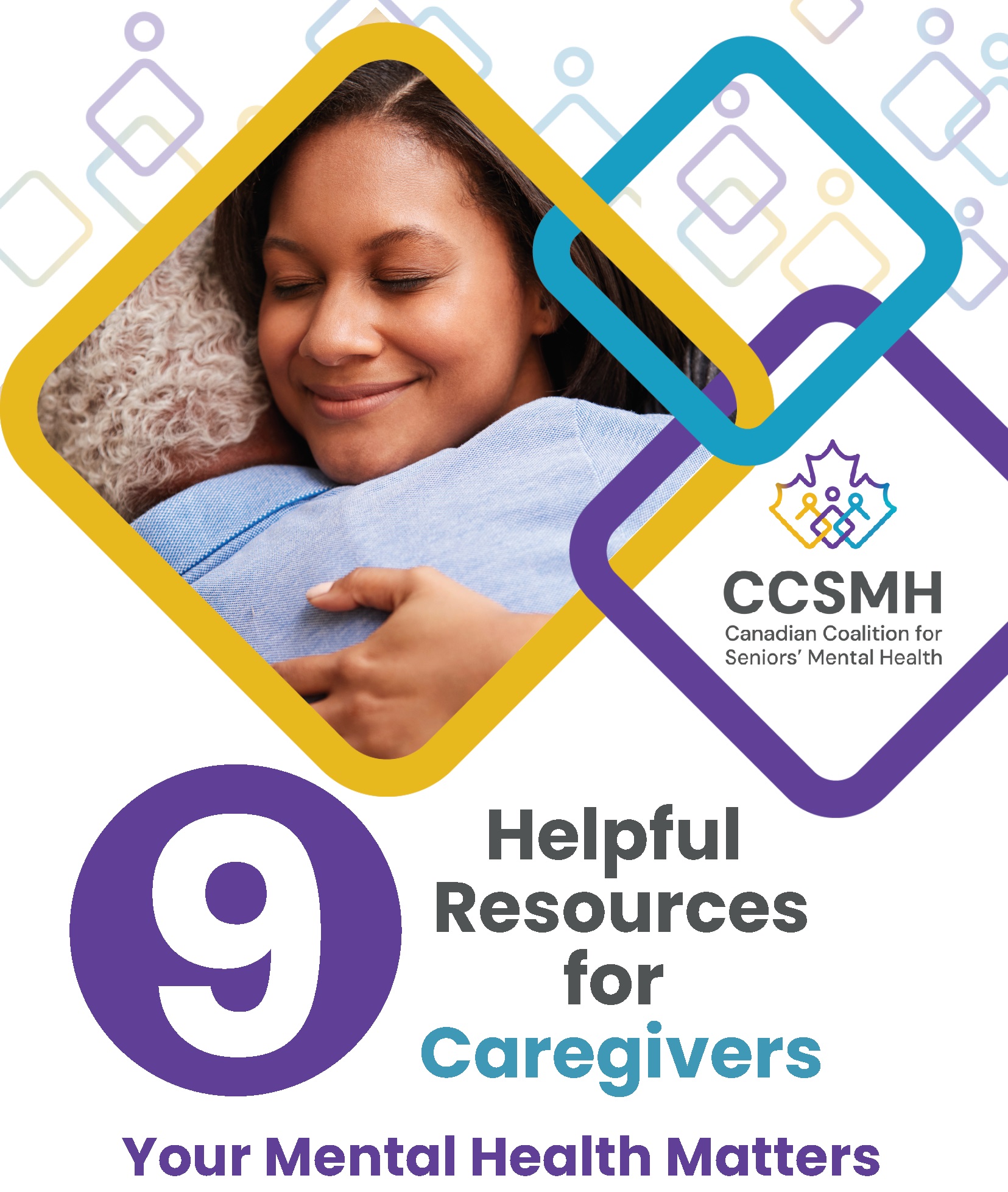
Learn about helpful resources for care partners.
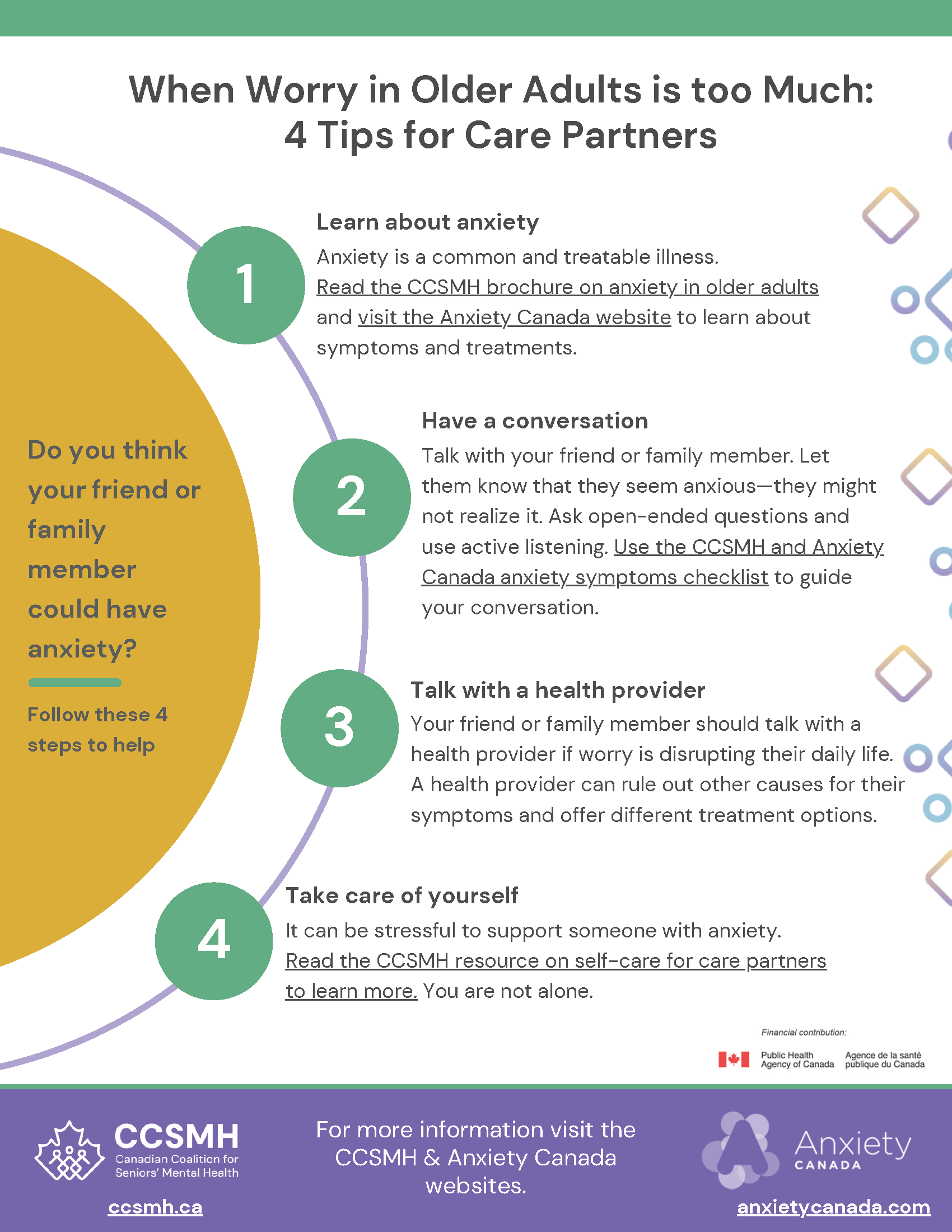
Do you think your friend or family member could have anxiety? Follow these 4 steps to help.
Learn more about anxiety in older adults
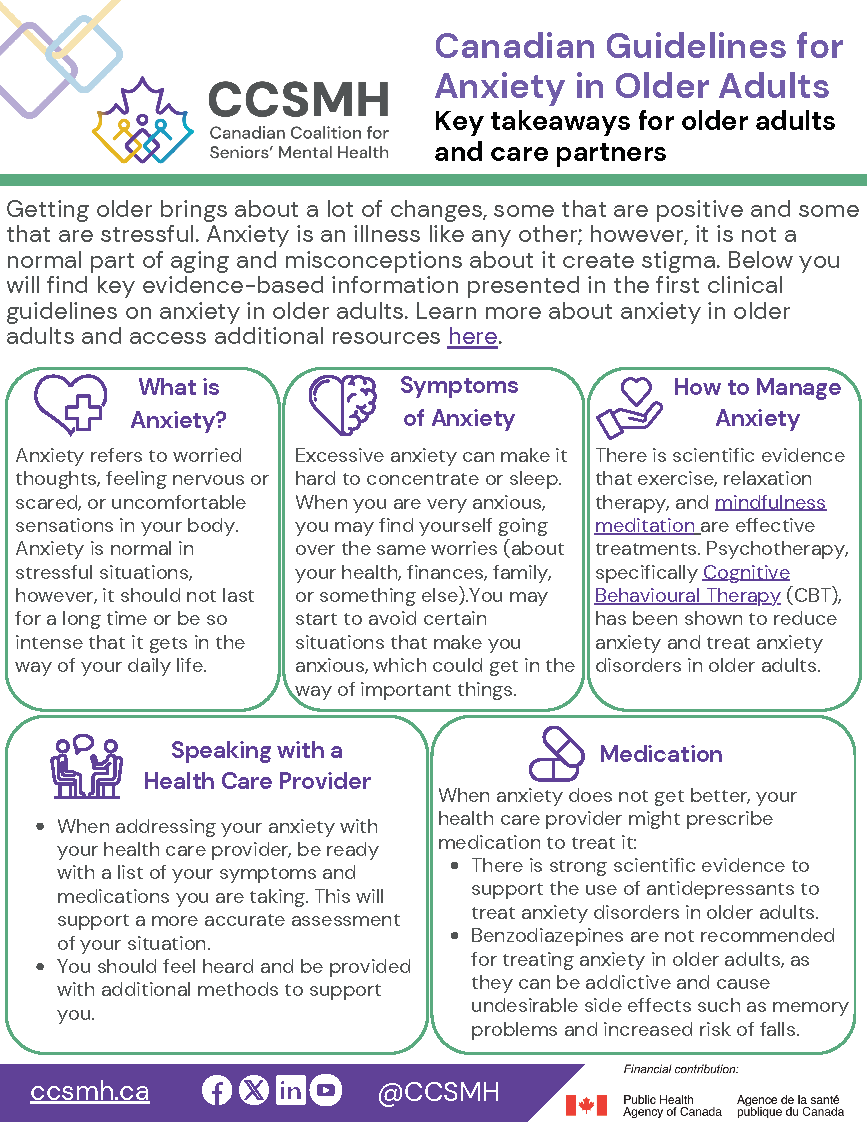
Want to know more about key information presented in the Canadian clinical guidelines for anxiety in older adults? Print this infosheet to have the information on hand during your next visit with a health care provider.
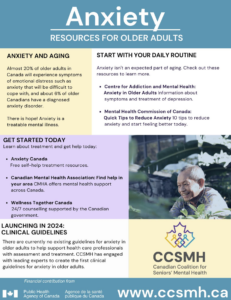
Download this digital poster to find additional tools, resources and external support services for older adults. Share the digital poster with your local community organizations.
Listen to the interview with Dr. Andrea Iaboni, geriatric psychiatrist
Listen to Dr. Andrea Iaboni, clinical lead of the guidelines, on the recent podcast interview with Anxiety Canada where she discusses the challenges older adults face in seeking mental health support, including the need for specialized treatment tailored to their unique circumstances. Dr. Iaboni underscores the significance of CCSMH’s clinical guidelines, which aim to bridge gaps in understanding and treatment for both health care providers and older adults and their caregivers.
